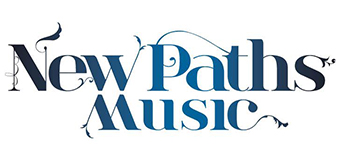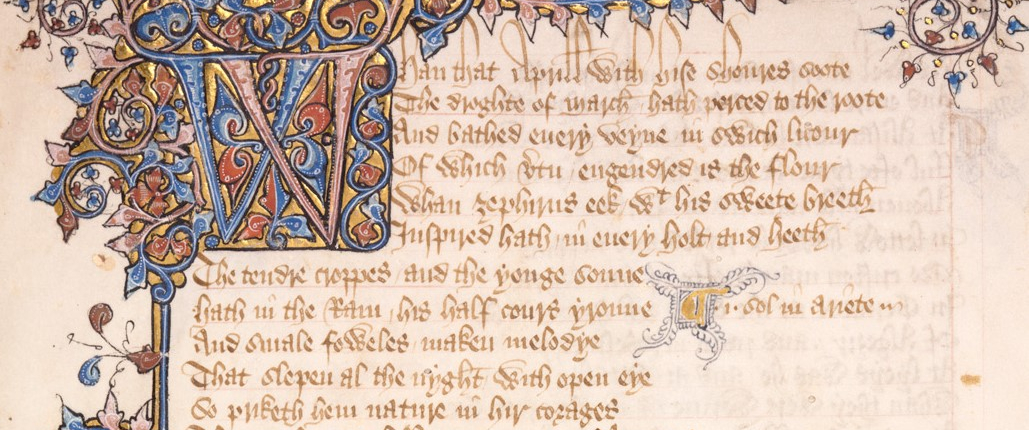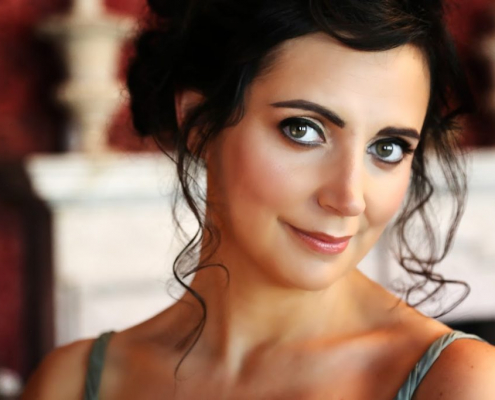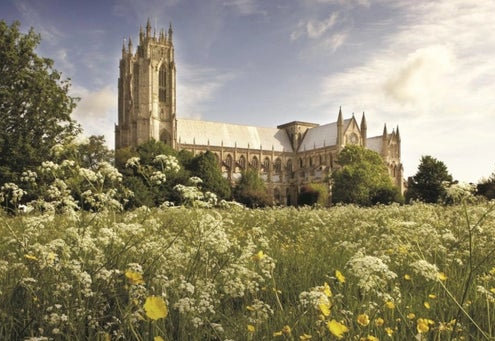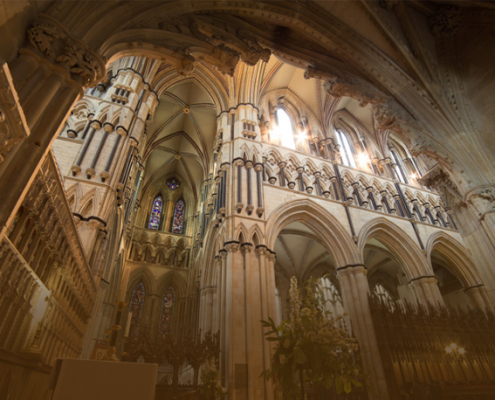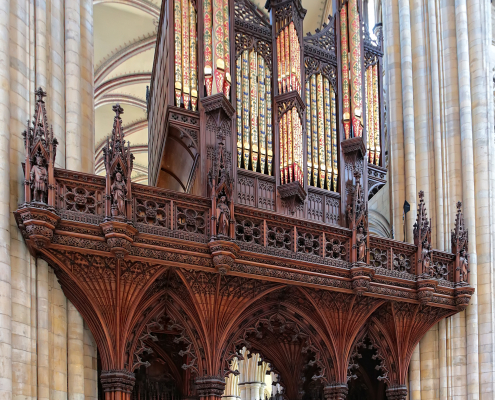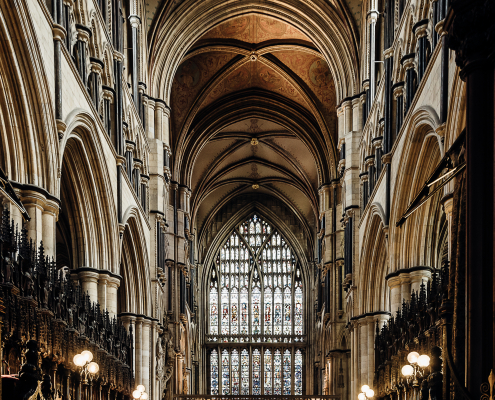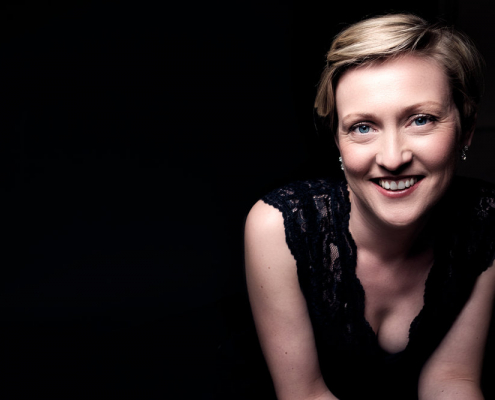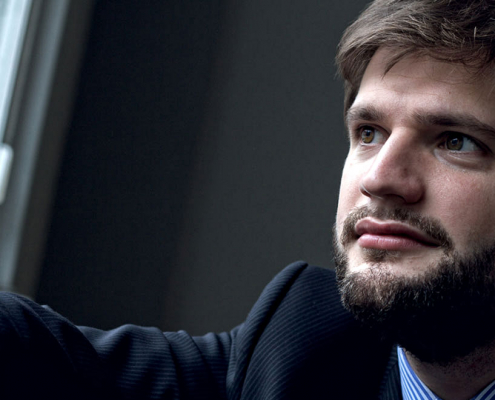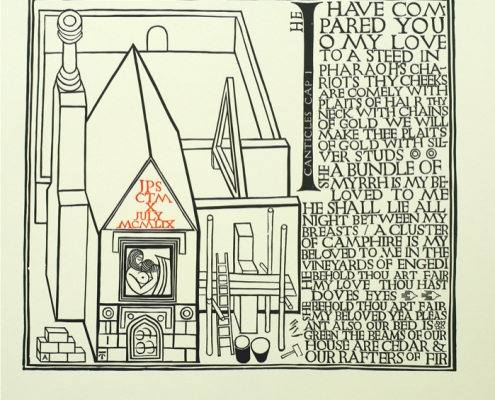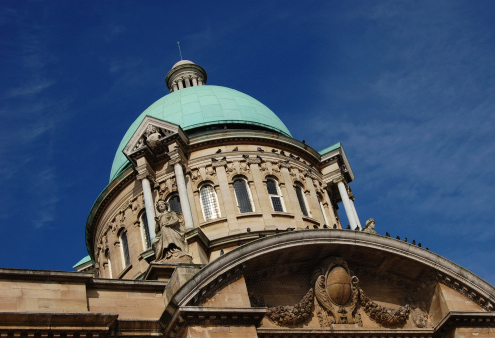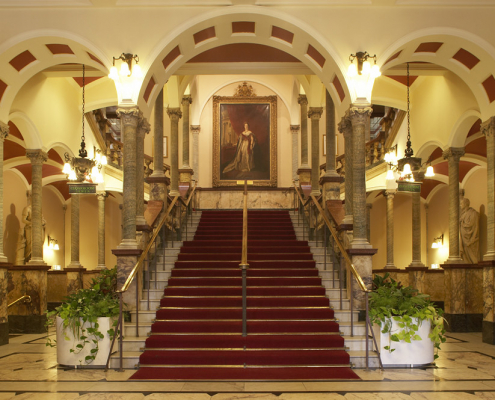Since time immemorial the return of spring has stirred in people a desire to travel. Geoffrey Chaucer begins The Canterbury Tales – an enormously popular poem in medieval England – with a description of this phenomenon:
Whan that Aprille with his shoures soote,The droghte of March hath perced to the roote,And bathed every veyne in swich licóurOf which vertú engendred is the flour […]Thanne longen folk to goon on pilgrimages
Rise up my love!
In Opus Alpha, the opening concert of the festival, soprano Aoife Miskelly sings Wanderlied from Fanny Mendelssohn’s 6 Lieder Op.1, a joyous call to live life to the full:
From the mountains to the hills,
and throughout the valley,
something resounds as if on wings,
something is stirring like a song!
And to absolute impulse
joy yields, reason yields;
and let your striving be for love!
And let your life be the deed.
It is just one of the works by a number of female composers featured at the festival with support from the Ambache Charitable Trust.
In the final concert of the festival, Closing Time, baritone Johnny Herford sings Schubert’s sublime Wanderers Nachtlied II; Goethe wrote this poem in pencil on the wall of a mountain-top chalet as he watched the sun set, and movingly returned in his old age to find his youthful handwriting still there.
Over every mountain-top
Lies peace,
In every tree-top
You scarcely feel
A breath of wind;
The little birds are hushed in the wood.
Wait, soon you too
Will be at peace.
Fit for a king
Whilst the burgeoning flowers and leaves on the Westwood – the pastureland surrounding Beverley – make it a very attractive place to visit in springtime, perhaps the town’s greatest charm is its architectural beauty. Not least Beverley Minster, one of the finest gothic buildings in Northern Europe and home to the shrine of St John of Beverley.
Pilgrims have visited the shrine for centuries, including Henry V who came at around this time of year in 1421 to give thanks for his victory at the earlier battle of Agincourt (fought on the Feast of the Translation of St John of Beverley). Enjoy the beauty of this glorious building at a number of performances during the festival including:
- Passacaglia, the free Sunday lunchtime recital on the Minster’s fine organ, given by illustrious organist John Scott Whiteley. At the heart of John’s programme is Diversions on a Chorale, the final organ composition by his old friend, the late Alan Spedding, organist of Beverley Minster for over 40 years and the generous musician in whose memory the festival was established.
- Chaconne, our late-night concert in the Quire of the Minster featuring two masterpieces by J.S. Bach; his Keyboard Partita No. 6 in E minor performed by artistic director, Libby Burgess, and his Violin Partita No. 2 in D minor performed by Maria Wloszczowska. A special opportunity to bask in the tranquillity of this exquisite space.
Lingua franca
The popularity of The Canterbury Tales in medieval England may be due to the fact that they were written in Middle English, a language that developed after the Norman invasion (after which those in power would have spoken French). The universal language of music is its power to evoke deep primal feelings at the core of the shared human experience. Be immersed in it in Beverley this spring. The programme includes songs in a couple of languages not previously featured at the festival:
- In People Look East – a concert of Eastern inspirations – Aoife sings Akatombo, a nostalgic depiction of a Japanese red dragonfly seen at sunset, set to music by Kosaku Yamanda.
- Fellow soprano Alexandra Kidgell sings the beautiful Welsh song Gweddi y Pechadur by Morfydd Owen in Celtic Rush Hour, a free early evening performance on the first day of the festival.
If any of our festivalgoers need a guide to the local East Riding dialect whilst here, we hope that this article might be useful:
For lo the winter is past
We are thrilled that Song of Songs, an exhibition of linocuts by Andrew Anderson, is taking place in the Minster during the festival. The rare exhibition includes a group of linocuts that originated as wedding presents for friends of the artist, dating from 1959, based on the collection of second century BC love poems in the Old Testament known variously as “The Song of Solomon”, “The Song of Songs”, and “The Canticles”. These fragrant poems are rich with springtime allusions, and we are very proud that this retrospective on Anderson’s work as a linocutter forms part of the festival.
The festival also includes a musical wedding present: Robert Schumann’s cycle Myrthen. Written as a wedding day gift for his bride, Clara, after their long battle for permission to marry, it contains some of Schumann’s greatest ever songs. For the performance of the cycle in Love Story, Libby is joined by mezzo-soprano Angharad Lyddon and baritone Gareth Brynmor John.
Bargain hunters will have spotted that you can hear all three of our rush-hour concerts (The Rite + Serenade + Love Story) for £22 with a Rush Hour Pass! (And, of course, under-18s can attend any performance in the festival for free with a Golden Ticket.) The supersaver Festival Pass has now sold out and all seats at our Friday lunchtime performance, Quintetto, are also taken. And so we have put on sale a new deeply discounted ticket, the Festival Pass Excluding Quintetto, giving you access to all concerts in the festival excluding Quintetto for £100. This represents extraordinary value for money. Buy yours today and start planning your time at the festival! We cannot wait to welcome you.
New Paths in Hull this week
In the meantime New Paths is thrilled to be giving the pre-concert talk for this week’s concert at Hull City Hall by the Royal Philharmonic Orchestra, with whom we’re honoured to partner. Joining Libby will be violinist Sophie Mather and baritone Gareth Brynmor John. They will be exploring Brahms’ First Symphony, and the song and chamber music related to it. Join us for this free event in the Mortimer Suite at 6:30pm on Thursday.
Footnote
Or, ‘footnerte’ as it sounds in the Hull accent. The images at the top and tail of this bulletin are extracts from pages of the Ellesmere Manuscript held by the Huntington Library in San Marino, California. View and read about this richly illustrated manuscript dating from the first decade of the fifteenth century at the British Library here.
